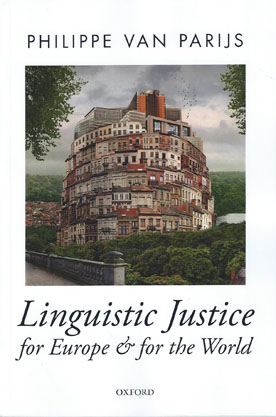
In Europe and throughout the world, competence in English is spreading at a speed never achieved by any language in human history. This apparently irresistible growing dominance of English is frequently perceived and sometimes indignantly denounced as being grossly unjust.
Linguistic Justice for Europe and for the World starts off arguing that the dissemination of competence in a common lingua franca is a process to be welcomed and accelerated, most fundamentally because it provides the the struggle for greater justice with an essential weapon: a cheap medium of cross-border communication and mobilization. However, the resulting linguistic situation is arguably unjust in three distinct senses.
Firstly, the adoption of one natural language as the lingua franca implies that its native speakers are getting a free ride by benefiting costlessly from the learning effort of others. Secondly, Anglophones gain greater opportunities as a result of competence in their native language becoming a more valuable asset. Thirdly, the privilege given to one language failes to show equal respect for the various langauges with which different portions of the population concerned identify.
The book spells out the corresponding interpretations of linguistic justice as cooperative justice, distributive justice, and parity of esteem. It discusses a wide range of policies that might help achieve linguistic justice in these three senses, from a linguistic tax on Anglophone countries to the banning of dubbing or the linguistic territoriality principle.
It also argues that linguistic diversity, though not valuable in itself, will nonetheless need to be protected as a by-product of the pursuit of linguistic justice as parity of esteem.